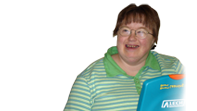PSP TPSID
| HI-Hawaii Center on Disability Studies UCEDD/JABSOM LEND Program | |||
| Program Type | UCEDD | Fiscal Year | 2020 |
| Contact | Eric Folk | ||
| [email protected] | |||
| Phone | 808-956-0883 | ||
| Project Description | |||
|
Need: In the U.S., few students with Intellectual Disabilities (ID) receive high school diplomas and despite the delivery of mandated transition services over the past two decades, there has been little improvement in post high school outcomes for these students. Today, less than 1% of persons with ID benefit from postsecondary education. The Center on Disability Studies at the University of Hawai`i at Mānoa is developing and testing the feasibility of a demonstration project designed to facilitate access to PSE for individuals with ID. The DEIS project is designed to demonstrate and replicate a sustainable, comprehensive transition model supporting eligible students with ID to participate within and complete a program of study, that 1) provides individualized supports and services for the academic and social inclusion of students with ID in academic courses, extracurricular activities, and other aspects of PSE; 2) offers opportunities for academic enrichment, socialization, independent living skills, including self-advocacy, and integrated work experiences and career skills that lead to gainful employment; and 3) integrates person centered planning in the development of the course of study specific to each student. Overall Goals: The specific goals of the project are to: 1) Conduct a collaborative development process to identify critical factors influencing quality transition and PSE for youth with ID that will result in the demonstration of a model consisting of evidence-based strategies to effectively foster inclusive participation and learning in a PSE setting; 2) Design, deliver, and assess the effectiveness of interagency team professional development activities to ensure effective implementation of services, supports, & accommodations, aligned with a PSE program of study; 3) Conduct a feasibility analysis of the developed model components and strategies to determine alignment with three levels of implementation (general student services; special needs/disability services; specialized services and supports) within targeted school, community, and PSE environments; 4) Deliver the scope and sequence of model demonstration strategies within a supported evaluation design; 5) Evaluate and determine the effectiveness of the model demonstration components and materials using valid qualitative and quantitative process and outcome measures of post-school success; and 6) Expand implementation to two or more other partnership sites in high need settings within the UH system. Participants and Partners: Participants include: 150 students with ID ages 18-26. Each project year, DEIS will enroll 20 students with ID from two high schools (i.e., 10 students/site/year), who have not exited high school with same-age peers and who continue to be eligible for IDEA services, while indicating a desire to pursue postsecondary education. Partners include faculty/staff from two community colleges (admissions, generic student support, disability support, and instructional personnel) and two high schools (Farrington and Hilo High Schools); and the Division of Vocational Rehabilitation; Department of Health; parents & advocates. Unusual Features: An interagency partnership protocol guides the participation, role definition, and fiscal/service provision alignment of each of the three primary partners (Department of Education, Postsecondary educational institution, Vocational Rehabilitation) and the person centered planning protocol will guide the individual student planning and service delivery aspects of the DEIS model. Expected Benefits: The iterative development and demonstration process will lead to refinement and replication of the model (outreach also extended to outer Pacific Basin). Through participation in PSE, individuals have the opportunity to develop academic competencies and valuable work skills, hone critical social skills, and broaden their worldview, all skills instrumental in improving one's career options, earning potential, and quality of life. |
|||







